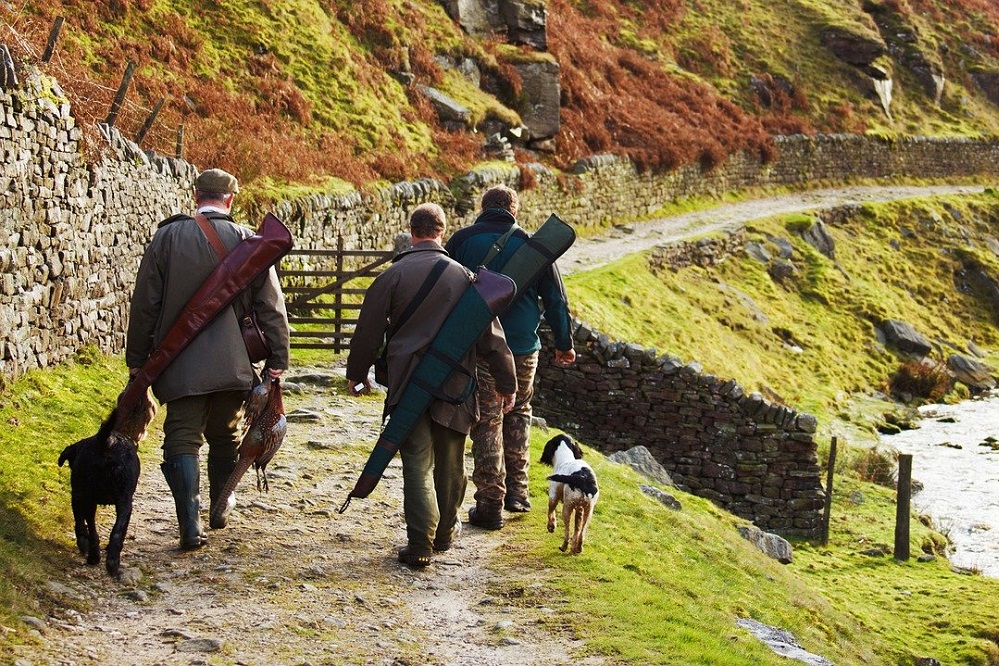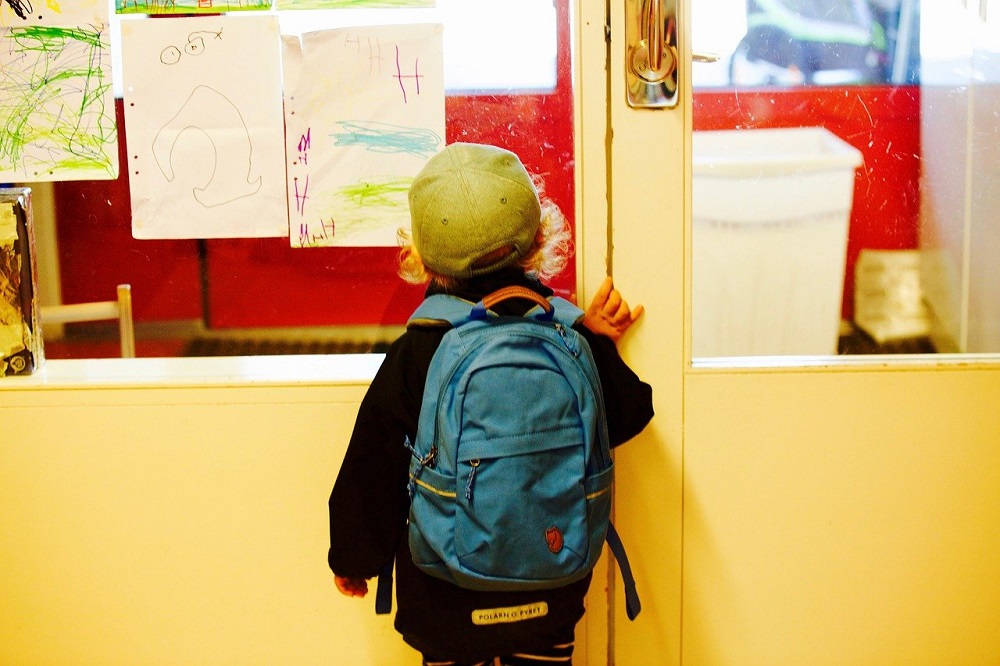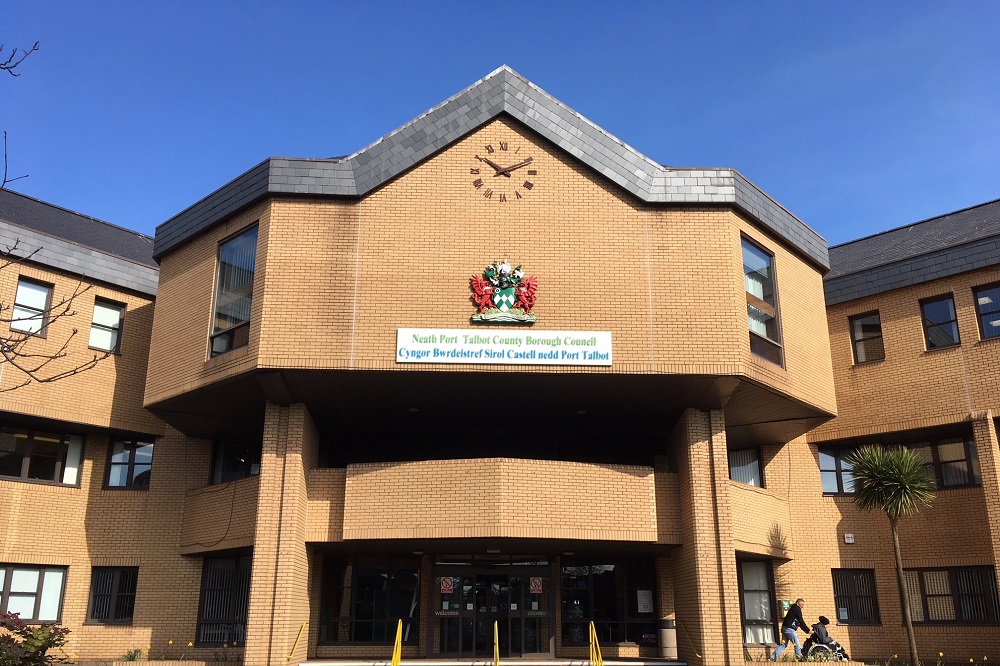News in brief: Government under fire over withdrawal of Covid funding support for ‘blood sports’

The Welsh Government has come under fire for refusing to support shooting related businesses which are struggling due to the impact of the Covid pandemic.
A statement issued by the British Association for Shooting and Conservation accuses the government of a “complete lack of understanding” of the importance of shooting to the Welsh economy, after it withdrew eligibility for Economic Resilience Fund support from shooting businesses for being “related to blood sports” last month.
The society, which has 150,000 members across the UK and describes its mission as promoting and protecting “sporting shooting and the well-being of the countryside” says the decision is “wholly unacceptable” and “indefensible”.
The BASC threatened legal action in June after discovering a shoot in Flintshire was refused access to the second round of the Economic Resilience Fund despite securing support in the scheme’s first funding round.
The statement says: “The Welsh Government’s sudden refusal to provide critical Covid support to a qualifying shooting business on the grounds that it relates to a ‘blood sport activity’ is wholly unacceptable. It demonstrates a complete lack of understanding of the importance of shooting to the Welsh economy, to the environment and to rural communities.
‘National crisis’
“Shooting has been a legitimate way of life in rural Wales for generations. It is a significant rural employer and helps manage the Welsh landscape we all know and love. Now, in a time of dire national crisis, the Government has turned its back on this vital sector.
“The position sends a message that the Welsh Government does not care about its rural communities and the people who help keep those communities alive.
“The attitude adopted by administration, illustrated by its statement that it will not support any activity ‘which in our opinion could bring the Welsh Government into disrepute’, is indefensible. It has caused a tidal wave of uncertainty for hundreds of rural jobs and businesses, as well as the future of shooting in Wales.
“We are urging the Welsh Government to reconsider its ill-conceived position before it does any more damage.”
In a letter explaining the government’s position, Economy Minister Vaughan Gething wrote:
“As part of the eligibility criteria for the Economic Resilience Fund, it states that the following activities are not eligible for funding: (1) party political purposes; (2) the promotion of particular secular, religious or political views; (3) gambling; (4) pornography; (5) offering sexual services; (6) any kind of illegal activities; or (7) any kind of activity which in our opinion could bring the Welsh Government into disrepute.
“The Welsh Government does not support certain activities are likely to give rise to controversy about appropriate use of public funds.
“The Welsh Government does not support activity which may lead to animal cruelty as a
leisure activity and as a result, the application would have been refused under category 7 of the above.”

Covid cases in schools jump 72% in the last week
Public Health Wales is reporting a big jump in the number of Coronavirus cases in schools for the second week in a row.
More than 400 cases have been reported in the last seven days, the highest level since schools were closed before Christmas at the height of the second wave of the pandemic.
Last week PHW reported 238 cases linked to schools, with the number of infections more than tripling in just three weeks as the spread of the Delta Covid variant accelerated across Wales.
In the six days to June 30, a total of 411 infections among staff and pupils have been confirmed in schools – up 72% on the previous week, with the majority of cases (197) in primary schools.
Yesterday PHW recorded a further 961 cases of the highly transmissible Delta variant in Wales, taking the total number of cases to 1,749 an increase of 122% on the previous week.
In Friday’s daily bulletin, 570 people tested positive for the virus in the past 24 hours and the rise in cases continues across the country.
Cardiff reported 83 new cases yesterday followed by Flintshire with 49 and Wrexham 43.
Flintshire continues to have the highest weekly case rate in Wales at 161.4 per 100,000 people, up from 157.6 yesterday. The test positivity rate is also the worst in the country at 8.6% per 100,000 tests, up 0.1% since yesterday.
More than 2,200 cases have been recorded in the last week and six of the 22 local authorities in Wales, now have case rate in three figures: Flintshire (161.4) Wrexham (147.8) Denbighshire (146.3) Conwy (102.4) Gwynedd (102) Cardiff (100).
The national case rate is up from 66.5 to 71.7 and the test positivity rate has risen 0.2% to 4.2% in the last day.

Minister fears furlough system will be axed ‘before the economy is ready’
Economy Minister Vaughan Gething has warned the UK Government against withdrawing the furlough support system too soon.
On Thursday UK ministers reduced the proportion of wages covered by the scheme from 80% to 70% and in August this will drop again to 60%. The programme is due to end in September.
The scheme was introduced just over a year ago to prevent mass job losses due to the Covid pandemic and 88,500 people in Wales are currently on furlough.
“It is clear that the impacts of the pandemic will continue for some time to come,” Mr Gething said.
“We have consistently pressed the UK government to maintain the Coronavirus Job Retention Scheme as business and individuals continue to deal with the effects of the pandemic.”
“We have been clear and consistent that this scheme, and other interventions, should not be withdrawn before the economy is ready,” he added.
“My cabinet colleague, the minister for finance and local government [Rebecca Evans], has called for an urgent meeting with the chancellor to build on the commitments made at the Covid Recovery Summit in order that all four nations work together to support economic recovery.”

Green light given for £30 million training project
Hannah Neary, local democracy reporter
Councillors have backed plans to create 3,000 apprenticeships and boost job skills across Swansea Bay via a £30 million project.
Neath Port Talbot Council has agreed to move ahead with plans to deliver a training programme that will improve job opportunities and give locals the skills they need for higher-paid jobs.
“We’ve got some very bright young and older people in Neath Port Talbot who are securing those qualifications and they’re leaving the county borough to find jobs which are available elsehwere,” said Nicola Pearce, the council’s corporate director of environment and regeneration.
“We need to reverse that, we need to create the skill and talent within the county borough and the region as a whole but we also need to ensure that they have opportunities for jobs to stay within that region.”
The Swansea Bay City Deal Skills and Talent Programme aims to create a clear path of training from school education through to employment in five sectors: digital, construction, energy, smart manufacturing and lifescience and wellbeing.
The five sectors form part of the City Deal a £1.3 billion project, which aims to create 9,000 jobs in its 15-year lifespan. Neath Port Talbot Council recently announced 50 new manufacturing and engineering jobs will be created at a factory in Neath as part of a City Deal project.
The skills programme will deliver “up-to-date training” through education, traineeships, apprenticeships and higher-level apprenticeships in five areas.
As part of the scheme, 14,000 people will receive training with higher level (between 2-8) skills within 10 years and two “centres of excellence” will be created within specific sectors to make the region a leading authority in skills devleopment.
A business case for the programme states 3,000 apprenticeships will be created, from level three to degree level and 20 new/updated courses will be made in line with industry standards.
The programme is needed because “the region is characterised by a higher proportion of individuals with no qualifications when compared with national averages,” a report by council officers reads. The report also states the area suffers from low GVA, a lack of well-paid jobs, skills shortages and many young people migrating elsewhere.
The project will be funded with £10 million from the City Deal grant, £16 million from the public sector and £4 million from the private sector.
“It’s great to see there’s going to be 3,000 apprenticeships created in the region,” said Plaid Cymru councillor Nigel Hunt.
“I hope that Neath Port Talbot gets a fair share of those apprenticeships and indeed that we get a fair share of the digital infrastructure projects. I’m really pleased to see the City Deal is moving forward.”
Plaid Cymru councillor Steve Hunt said the people living in valleys communities suffer from connectivity issues and “poor transport” links and he is concerned they may not be able to fully benefit from the training programme due to these restrictions.
He said that digital connectivity is so poor in some areas that one constituent told him she is having to give up a £25,000 per annum job because she does not have the resources to support home working.
Jane Lewis, the council’s regional partnership manager, said there is a “digital infrastructure project” within the City Deal, which aims to “ensure that there is maximum connectivity throughout the whole region”.
She added: “The Skills and Talent Programme understands the need for good connectivity, particularly at this very challenging time of delivering training online and connectivity is particularly important to ensure that people can also work from home and keep people safe.”
Labour councillor Sonia Reynolds said she is “concerned” that people living in remote and valleys communities would miss out on the benefits of the programme due to limited transport, which “makes life very difficult” for people with childcare needs, family and other job commitments.
“We need to see the practicalities of this spelt out… It’s not about what people are going to learn, it’s about how they access that learning. We know that the majority of employers are not in the valley areas. We know that apprenticeships are difficult to get there.
“We know that colleges are based in towns and that even our own adult learning department does not come up into the valleys that much and people have to go to them or work online. That’s not that easy for some parents who’ve got children at home.
“We need to have a plan as to how that goes forward and I hope that all of the partners working together can produce something over time… that will actually address those issues.”
Ms Headon said: “Once we get that funding that’s when we can put those practical plans in place.”
Ms Lewis said: “We can’t do this all on our own. We have to work with the employability programmes that are out there, we have to work with the colleges, the universities and the training providers.
“What I wouldn’t like to see is that because we haven’t got the skilled individuals in the region, that people are brought in from outside the region to take up the jobs that our young people and people in employment in our region should be getting.”
The council’s cabinet voted to support the skills programme during a meeting on Wednesday.
Support our Nation today
For the price of a cup of coffee a month you can help us create an independent, not-for-profit, national news service for the people of Wales, by the people of Wales.






I freely acknowledge that I could be missing something significant here, but for me bloodsports are a barbaric anachronism that we could well do without. I admit I am envisioning badger baiters, ratters, fox-hunting toffs and the keepers of hounds (in what I think are barbaric conditions). I don’t belittle anyone losing their livelihoods even if I disagree with them. But some kind of initiative to help them move businesses to something more humane might be a start.
The term ‘blood sports’ was deliberately chosen to elicit a reaction of exactly the kind you describe.
The vast majority of shooting is related to keeping animal populations under control (rabbit and deer for example) and game-bird shooting (including clay-pigeons!).
Fox-hunting, badger-baiting and hare-coursing are exactly the types of activity that the Welsh Gov wanted people to think of when they worded their response, however, few of those activities involve shooting and many are illegal.
As a consequence, legitimate businesses that provide vital pest control and conservation services have been deliberately excluded from aid, purely on ignorant/ideological grounds.